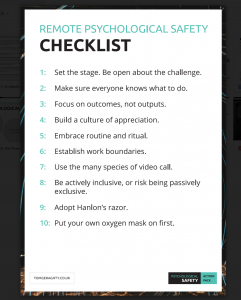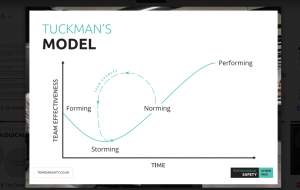This is an in-progress review regarding module content, teaching delivery, curriculum, online teaching, assessment methods and tools for the online Global Health Masters Degree at The University of Manchester and the Humanitarian and Conflict Research Institute (HCRI), where I’m currently studying.
(Last updated: 19 March 2024)
I’ve now completed the second year of this taught Masters degree, and I would have to say that my experience of the teaching quality, content delivery, and assessment consistency has been somewhat variable. It’s quite clear that the University of Manchester doesn’t adequately support or design courses for adult, distance learners.
If you’re looking for a Masters Degree, as an adult, distance learner, I would not recommend this course. The content is generally satisfactory (though often out of date and disjointed between modules), but delivery, assessment, communication, and support is seriously lacking.
Curriculum and content
The course content and curriculum however is generally pretty good, it’s comprehensive, interesting, and covers research methods, epidemiology, and global health fundamentals to begin with, and lays good foundations for subsequent modules.
The first two modules were excellent in respect to curriculum and content. The third was a little muddled, and the fourth, which I’m studying now (community approaches to healthcare) feels very scattered, out of date and more about theoretical sociology than anything in the application or understanding of community approaches to healthcare. In many of the modules, the volume of assessment-based work has felt excessive, meaning that a lot of the learning work (of which there is a lot of mandatory reading – more so than previous modules) has to be dropped in order to make time for completing assessments, which is less than ideal. I’d love to read more about some of the topics in the syllabus, but assessments must take priority.
This is a “Level 7” course, so the demands are high, but students are not expected to be “at” level 7 at the inception of the course, despite a few comments from lecturers to the contrary. I can heartily recommend watching this video below that will REALLY help you take notes, learn, and write your assessments:
Having now completed the “Disaster response and Readiness” module, I will say that the content is excellent, though there is some overlap with previous modules. This isn’t necessarily a bad thing, as it helps to reinforce some of the stuff we’ve already learned.
Delivery
The delivery, I’ll be honest, is really variable, spanning from just ok to really poor at times. Compared to other institutions such as the Open University, the online offering does appear to be lacking in some areas. The QAA provide an excellent framework to help understand what you should expect from a higher education institution in respect to teaching, assessment, admissions, etc.
The course is advertised as:
“The course has been designed to recreate a classroom learning environment in an online format. You will be able to engage fully with the course content and with peers via lectures, discussion boards, group work, online chat, question and answer sessions with the tutor, and peer-to-peer feedback and assessment.”
I feel this is rather misleading. We haven’t had any lectures. We did have a group exercise, when we were placed into groups of 15 students to create a piece of work. This is far too large a group size, and resulted in a heavy management overhead for the 2-3 people who were capable of managing a collaborative, remote project.
We do have online chat – but only because we set up our own WhatsApp group.
We have had two Q&A sessions in module 3, and two in module four (though with very short notice, meaning many people, including myself, missed it due to work commitments.) The live sessions however, are in the UK daytime, so many people with full time jobs, or in very different time zones, were not able to attend or had to get up in the middle of their night.
Some of the weekly module material is rather out of date, with broken links and conflicting instructions regarding weekly assessments. The course would definitely benefit from improved QA processes so that students can spend more time learning and less time searching for papers referenced in the materials as essential reading. When your time is limited, it is very frustrating to be told to read a paper which is poorly referenced, missing from reading lists, and hard or impossible to find online.
What also surprises me is that the course material is only released each week. I’m not sure why it can’t be provided at the start of the module, so that we can learn at our own pace and better fit it in with work, family, and other commitments.
Assessment
The course is advertised as:
“You will also receive formative feedback and guidance throughout the course, which will enable you to progress and develop your confidence and analytical skills.”
There is a nod to formative assessment (formative assessments are essentially checks to make sure students are on the right track, so that teaching and content can be tweaked accordingly, prior to summative assessments), in the form of online discussion boards. However, the feedback and engagement on discussion boards is rarely from the module lecturer, and instead is provided by other post-graduate or post-doc students.
There is certainly no feedback loop in place to ensure that students on the course are learning the right things at the right time. It really is quite difficult to gauge if you’re doing well, or doing badly, until you receive your marks some weeks after the module has ended.
In respect to summative assessment, grades and feedback were often delayed, which I put down to the challenges of 2020. However, most of our cohort agreed that the feedback on submitted coursework was often sparse, and at times suggested that the coursework had only been given a cursory review. Worse still, marking criteria appear to change for different modules – for one module’s essay assignment, marks are taken off for not using subheadings, and another essay, marks were taken off for using subheadings. I have fairly serious concerns about the lack of consistency between modules.
As is so often the case with academic critique, suggestions are frequently made to discuss points further, add introductory text and expand in more detail – even where the essay is at the word limit, making it impossible to actually comply with the suggestion. In my opinion, this is simply lazy feedback: anyone can suggest you “expand in more detail”, but without actionable feedback about where you could improve your work, it’s meaningless.
Recently, we’ve also been asked to submit a critical review for assessment. Prior to the assessment, we’ve had no teaching regarding what constitutes a critical review, and despite many requests from multiple students for an example of a critical review so that we know what we’re supposed to be submitting, all the requests were refused. This makes for a somewhat stressful assessment delivery, since most of the communication on the whatsapp group for a few weeks was people asking each other for support.
I also believe the course is over-assessed; but this can be said of the majority of academic courses that don’t take into account the opportunity cost of assessment versus dedicated learning. Your mileage and opinion may vary. I’m personally of the opinion that learning is more important than assessment.
I’ve now completed the “Disaster Preparedness” module, and feeling very frustrated by how long it’s taking for essays to be marked. We’re nearly at the end of the following module, and still haven’t had our marks or feedback from the previous one. This makes it very hard to take on any feedback and improve subsequent work. It’s not really acceptable to set a hard deadline for students who are paying large fees, and expect them to wait indeterminately long to receive their marks.
Update on assessment March 2024
This is rather more worrying, and I’ve made a formal complaint as a result. To be as brief as possible, in the “Leadership” module (which is a rather haphazard collection of organisational theory and project management topics) our primary summative assessment was an essay, described in the “module handbook” and listed as 2500 words. At the start of each module, I gather all the necessary information, collate it together and plan my work for the next few weeks around it – because I have a job and a family and I have to plan well ahead to fit everything in.
Unbeknownst to me, the module provider, Ayham Fattoum, changed the word limit to 2000 words. This was noted by him in a comment in a general forum thread on a different topic. There was no announcement or notification.
When I received the grade back for the essay, I had been penalised for going far over the limit. I was rather surprised by this and it took me a while to work out what had happened, and how I wrote a 2494 word essay with a 2000 word limit. Eventually I worked it out and emailed Ayham. He responded this:
Hi Tom,
Just to update you that your essay will be reviewed considering the quality of the essay (to what extent it has addressed the essay question, understanding, etc..) up to 2000 words. If the quality deserves a higher mark, then the penalty will be removed, and the assigned mark will be updated accordingly.
This may take a few working days.
I queried why only the first 2000 words were being marked and Ayham responded:
Hi Tom,
Now, the essay is not being penalised for exceeding the wordcount. The quality of the essay up to 2000 words was taken into consideration to decide on the mark. The feedback highlights areas for improvement for this essay. Let me know if you have questions about the feedback (which evaluates the quality of the essay).
Normally, we would not re-consider the penalty because the 2000 words have been communicated on the welcome page and in general forum on the discussion board weeks before the submission date. Moderators may argue that not spotting the change in word count is evidence that the student was not engaged in the module, especially that all other students met the 2000 words count.
So here, Ayham is implying it was my fault. The implication that I’m “not engaged” because I plan well ahead due to having a family to look after and a business to run is frankly offensive.
My concern is that many of the students on this course come straight from undergrad level and wouldn’t be aware that they can challenge this sort of issue, let alone have to put up with unprofessional communication. Unless this behaviour is challenged and addressed, I fear that it will likely continue. What’s really disappointing is that all of this could have been avoided with a simple apology and a reassessment.
January 2024:
I’ve completed the Diseases and Trauma in Developing Countries module now, which overlapped to a fair degree with previous modules. It was interesting, and took a different perspective, building more on non-communicable diseases than previous modules. The course content was good, but assessment unfortunately took far too long, and consisted again largely of “expand on this” and “more detail” feedback, which is not useful when you’re at the word limit of a 1500 word essay. Good feedback would include which bits to cut out or reduce – because we can’t keep adding content to an essay with no words left!
More serious issues – mitigating circumstances
I contacted the Student Support & Wellbeing Team (salc.mitcircs@manchester.ac.uk) to request a short extension to an essay deadline due to some serious family issues that had to be dealt with. This request was rejected out of hand, as you can see in the image below:

This is yet another example of how the University of Manchester doesn’t adequately support or design courses for adult, distance learners.
Assessment feedback: the university ask students to provide feedback at the completion of each module. However, the deadline for feedback is *before* you receive your own marking, grades, and feedback from the course lecturers – which makes it impossible to provide said feedback. Every time this happens, I’ve given the feedback office this feedback, and received no response!
Support
When you do need support, the course director is very responsive and helpful, as are many of the course leaders – in what must have been a very challenging year for them. Some of the course/module leaders are evidently quite new to teaching and good pedagogical (the theory and practise of learning) practices.
The University of Manchester provide some excellent student support facilities and services. The library is excellent (and the librarians are super helpful!), other student support services are great, and there are some fantastic extra-curricular activities and clubs too.
Costs
I paid £2100 in fees as a home (UK) student for entry in September 2020. I understand that the fees have now risen to £3,333 (correct as of 2022).
My perspective
My personal opinion is that there is at times little acknowledgement of the varying backgrounds and needs of PGT (Post Graduate Taught) students, who, particularly on remote courses, are often treated as second-class students. PGT students may have full-time jobs, caring responsibilities, particular timetables to stick to, and other differences to the typical undergraduate student. PGT courses such as this global health masters degree, should be designed with this in mind, so that we can better structure learning around existing commitments.
I feel (and this is purely conjecture) that it can sometimes be difficult for academics, particularly if their career has always followed an academic path, to empathise and understand that PGT students are not sitting at their desks all day every day. We may well be squeezing in study for an hour or two each evening, at the kitchen table, or simply allocating a full day every weekend to it, for example. This means that if something isn’t available, a link doesn’t work or a tool is broken, for some people, it can instantly set them a week behind.
Mitigations
As noted earlier, as a cohort of students, we realised early on that we needed to create a whatsapp group to communicate with each other. Instructions, marking criteria, or the tools provided (blackboard) were sometimes unclear, difficult to access, find or understand, as well as lecturers often taking a few days or sometimes weeks to respond to queries posted on the boards. A support group where it was safe to ask the “stupid questions” and get responses quickly was essential. When you only have an evening to get through your workload, you can’t wait another few days for an answer.
Also, the University tools are largely desktop browser based, so a communication platform such as whatsapp on mobile devices made for much easier communication inside our very mixed and globally distributed cohort.
Recommendations
If you’re considering the course, I can also recommend the below books, which if you haven’t read them already, can provide useful background and context:
- Half The Sky – by Kristoff and Wudunn (womens rights, education, RSH)
- Getting to Zero – by Walsh and Johnson (epidemiology, medicine, aid)
- The Health Gap by Michael Marmot (social determinants of health)
- Chasing Chaos by Jessica Alexander (aid and humanitarianism)
- And the band played on by Randy Shilts (the AIDS epidemic and agency response)
- A textbook on global health, such as McKracken and Phillips will be useful
Oh, and Greg Martin’s global health channel on youtube is a great resource!
If you’re looking for a high quality taught masters degree in global health, and would like to find out more, please get in touch via email at tom@tomgeraghty.co.uk, and I can provide a true and honest description of what to expect on this distance-learning masters degree.
The course is affiliated with the Humanitarian and Conflict Response Institute (HCRI) at the University of Manchester
The below is copied from the Global Health Masters Degree (MSc) at The University of Manchester website pages
Community Approaches to Health : Examine issues of psycho-social care, behaviour change, aging, micro-insurance, advocacy, holistic health, HIV, nutrition, breast feeding, hygiene promotion and immunisation.
Ethics, Human Rights and Health : Consider the role of gender, health inequalities, dignity, legal frameworks, rights based approaches to health, reproductive rights, Millennium development goals 4, 5, and 6, child rights, and accessing illegal drug users and commercial sex workers.
Health Systems and Markets: Look at the social determinants of health, the work of civil society organisations, the interfaces between states and economies, organisational change, health financing, urban health, rural access, food security, agriculture, and eradication programming.
Risk, Vulnerability and Resilience: An introduction to public and global health, risk assessments and management, epidemiology, population ageing, the determinants of child survival, and pandemics.
You will be able to engage fully with the course content and other students via lectures, discussion boards, group work, online chat, question and answer sessions with the tutor, and peer-to-peer feedback and assessment.
PGCert, PGDip and MSc awards
You can exit the course with a PGCert award after Year 1, a PGDip after Year 2, or an MSc after Year 3.
Teaching and learning
The course will begin with an online induction session that explains how the course will progress and how you can fully engage with the curriculum and the online classroom environment. It will set out the key contacts and what each student can expect.
Academic and pastoral support will be offered online by the programme director, course leaders and teaching assistants, who will be responsible for monitoring progression through the course. A dedicated programme administrator will be responsible for dealing with day-to-day enquiries.
The course lasts for three years in total. You will study four course units in each of Years 1 and 2. Each of the four units comprises eight weeks of teaching followed by one week of assessment.
You will complete each unit in turn before progressing to the next. The format is designed to be adaptable to the needs of professional students and provides opportunity for reflection between units.
Year 3 comprises the dissertation for the MSc award. Students will submit a research proposal and be allocated a dissertation supervisor. You will then be guided through key milestones in the completion of your dissertation.
The course has been designed to recreate a classroom learning environment in an online format. You will be able to engage fully with the course content and with peers via lectures, discussion boards, group work, online chat, question and answer sessions with the tutor, and peer-to-peer feedback and assessment.
Coursework and assessment
All assessment will take place online. Each of the four units in Years 1 and 2 will conclude with a selection of assessments, including multiple choice tests, group assignments such as wikis, and prose-based assessments.
Certain academic pieces placed in the discussion forums are used as part of the overall assessment process for each unit (10%).
Each student will provide a 350 to 500-word (excluding references) written academic piece expressing a view or perspective upon a question raised by the tutor/convenor weekly during the course of the course.
This will provide eight pieces of primary work that will be submitted to the discussion board per course unit. Engagement on the discussion boards is required throughout the course.
You will also receive formative feedback and guidance throughout the course, which will enable you to progress and develop your confidence and analytical skills.
Course unit details
You will study four course units in each of Years 1 and 2. Each of the four units comprises eight weeks of teaching followed by one week of assessment.
Year 3 comprises the dissertation for the MSc award.
Exit awards
You will receive 60 credits for the successful completion of each year of the course, totalling 180 credits for the MSc award.
It is possible to exit the course earlier than this with 60 credits for a PGCert award or 120 credits for a PGDip.
All of the credits you earn will be transferable to other academic institutions.





